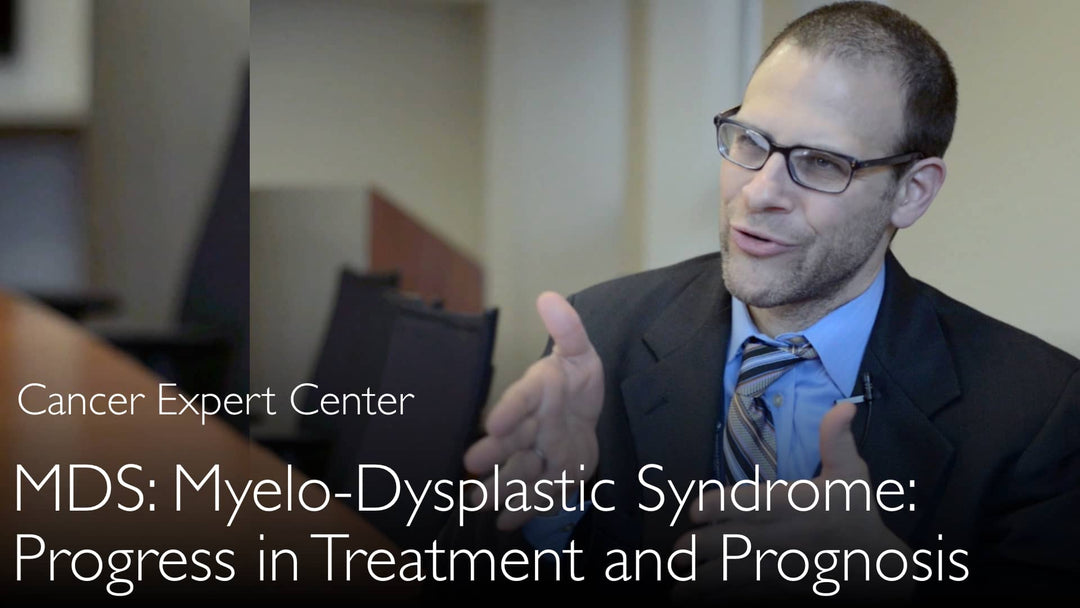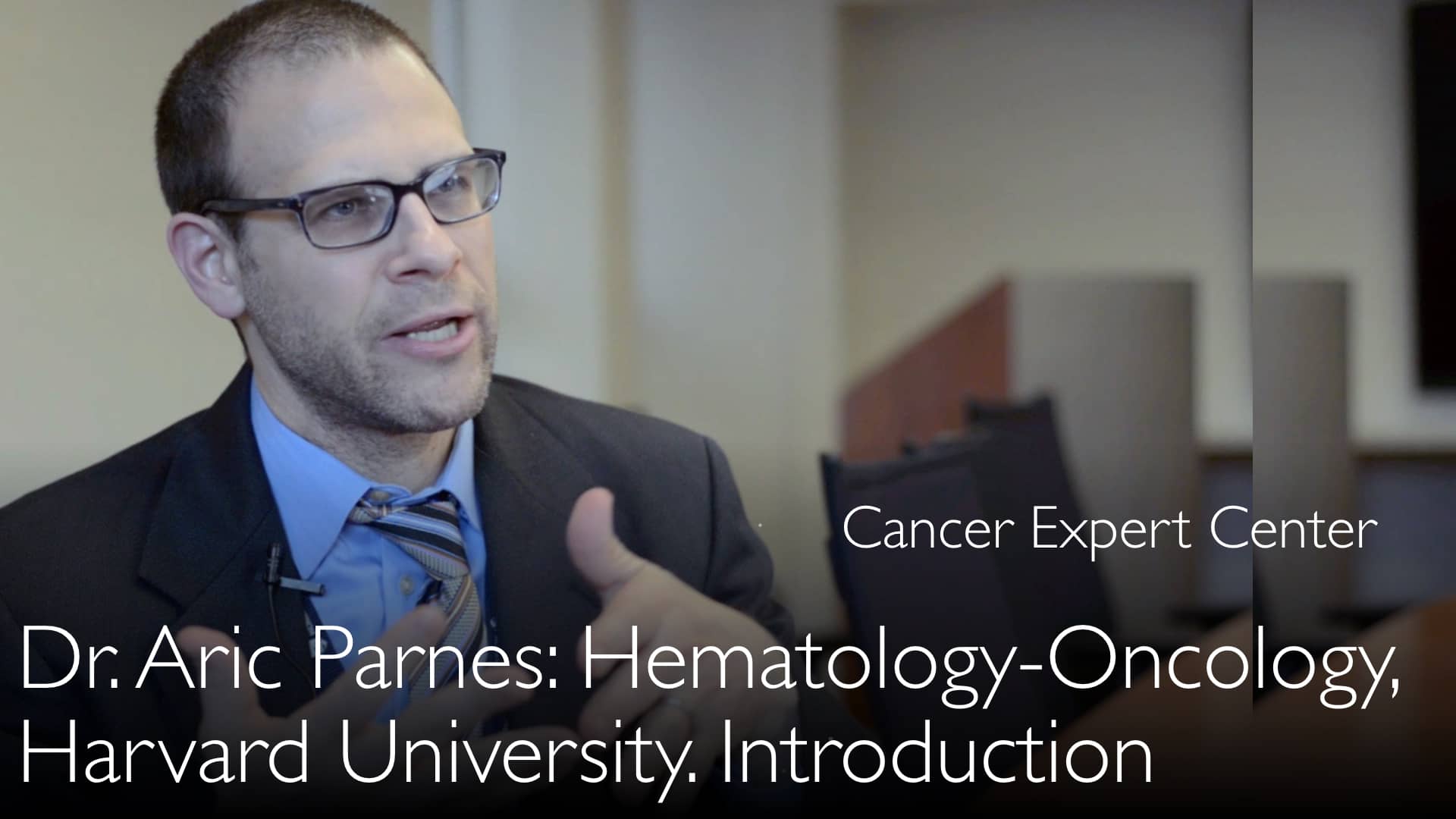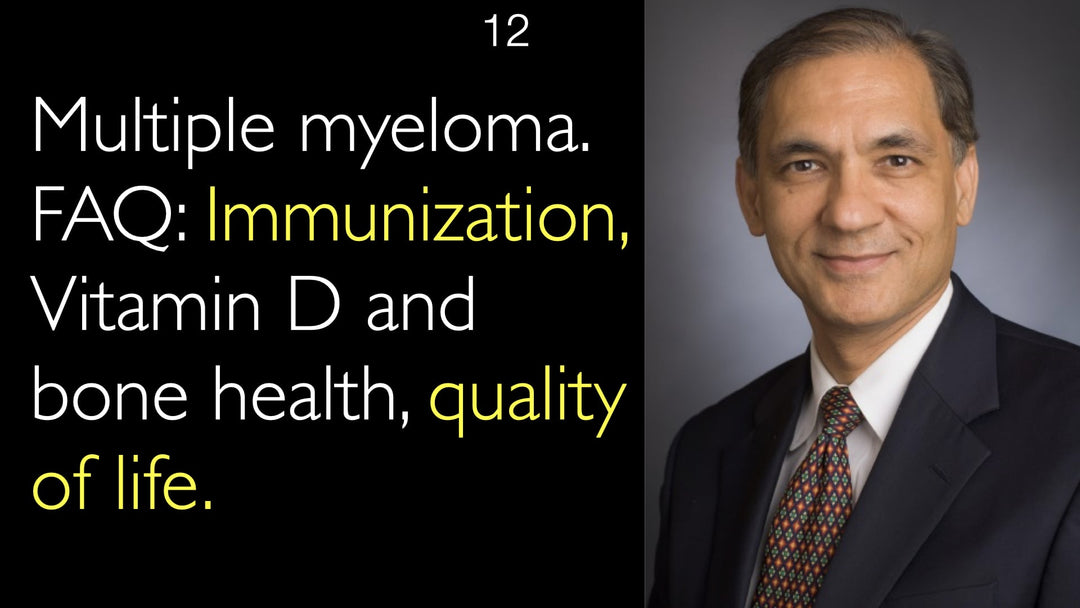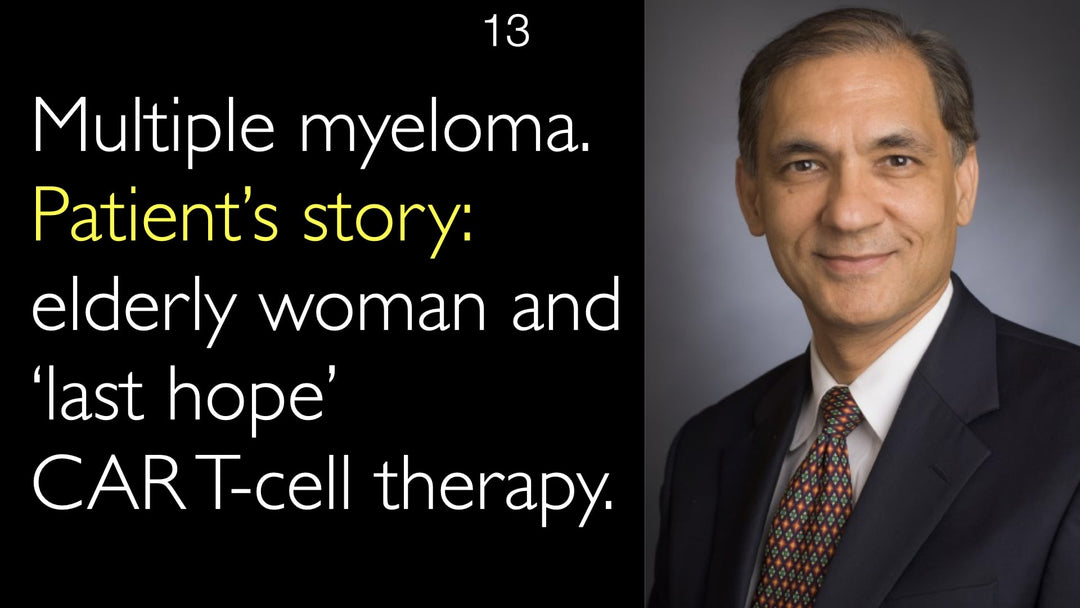Leading expert in myelodysplastic syndromes, Dr. Aric Parnes, MD, explains the critical role of bone marrow biopsy and genetic testing in MD S diagnosis. He details the progression from supportive care to targeted therapies like lenalidomide for specific mutations. Dr. Aric Parnes, MD, emphasizes the importance of prognostic scoring systems for predicting survival and leukemia risk. The future of MD S treatment lies in precision medicine and personalized care plans.
Myelodysplastic Syndrome Diagnosis, Prognosis, and Modern Treatment Options
Jump To Section
- What Is Myelodysplastic Syndrome?
- MD S Diagnosis Process
- MD S Prognosis Scoring
- MD S Treatment Options
- Targeted Therapy for MD S
- Future MD S Treatments
- Full Transcript
What Is Myelodysplastic Syndrome?
Myelodysplastic syndrome (MD S) is a group of bone marrow failure disorders. Dr. Aric Parnes, MD, describes MD S as a condition caused by poorly functioning bone marrow stem cells. This leads to ineffective blood cell production, a process known as dysplasia.
The term "myelodysplastic" literally means abnormal bone marrow development. MD S typically results in pancytopenia, a deficiency of all three major blood cell lines. This includes red blood cells, white blood cells, and platelets, causing fatigue, infections, and bleeding.
MD S Diagnosis Process
Diagnosing myelodysplastic syndrome requires a bone marrow biopsy. Dr. Aric Parnes, MD, emphasizes this is an absolute necessity for a definitive MD S diagnosis. Peripheral blood smears showing low counts are not sufficient to confirm the disease.
Under microscopic examination, doctors look for dysplastic cells within the marrow itself. Modern diagnosis now includes advanced genetic testing like the Rapid Heme Panel. This test analyzes 95 genetic mutations common in blood disorders for a more precise diagnosis.
MD S Prognosis Scoring
Modern MD S care relies on sophisticated prognostic scoring systems. These tools incorporate blood counts, bone marrow characteristics, and genetic mutations. Dr. Aric Parnes, MD, explains these systems help estimate the risk of progression to acute myeloid leukemia (AML).
Prognostic scoring is crucial for guiding MD S treatment planning. It helps physicians predict survival outcomes and disease aggression. Genetic mutations identified through testing play a significant role in determining individual patient prognosis.
MD S Treatment Options
First-line MD S treatment often begins with supportive care. This includes red blood cell transfusions for anemia and platelet transfusions for bleeding. Hematopoietic growth factors like erythropoietin (EPO) and G-CSF are also commonly used.
When supportive care is insufficient, therapy escalates to disease-modifying drugs. Hypomethylating agents like azacitidine (Vidaza) and decitabine (Dacogen) are administered as monthly IV infusions. Dr. Aric Parnes, MD, notes these medications are generally well tolerated by patients.
Targeted Therapy for MD S
Targeted therapy represents a major advancement in myelodysplastic syndrome treatment. Dr. Anton Titov, MD, discusses with Dr. Parnes the dramatic example of lenalidomide (Revlimid) for patients with a 5q deletion. This oral immune-modulating drug often leads to transfusion independence and durable remission.
This approach exemplifies the precision medicine era in MD S care. Treatment is increasingly personalized based on individual genetic findings. This strategy enables more effective and targeted interventions with better patient outcomes.
Future MD S Treatments
The landscape of myelodysplastic syndrome treatment continues to evolve rapidly. Currently, only three FDA-approved agents are commonly used in MD S management. Dr. Aric Parnes, MD, indicates future therapies will target additional mutations with combination regimens.
New drug classes and treatment approaches are on the horizon for MD S patients. The promise of precision medicine means more personalized and effective care plans. Dr. Anton Titov, MD, highlights these advancements offer hope for improved quality of life and longer survival.
Full Transcript
Dr. Anton Titov, MD: What is myelodysplastic syndrome (MD S)?
Dr. Aric Parnes, MD: Myelodysplastic syndrome (MD S) is a group of disorders caused by poorly functioning bone marrow stem cells. Sometimes referred to as a bone marrow failure disorder, MD S leads to ineffective blood cell production and a range of serious complications.
The term "myelodysplastic" breaks down into myelo, meaning bone marrow, and dysplasia, meaning abnormal development. MD S is considered a syndrome because it includes multiple disease processes and remains incompletely understood.
Dr. Anton Titov, MD: Who is at risk?
Dr. Aric Parnes, MD: Incidence increases with age, especially in patients over 60. Risk factors may include prior chemotherapy or radiation therapy, exposure to toxins such as benzene, and genetic predispositions.
Dr. Anton Titov, MD: Why is a bone marrow biopsy essential?
Dr. Aric Parnes, MD: You absolutely need a bone marrow biopsy to diagnose MD S. While peripheral blood smears may show low counts, they rarely provide a definitive diagnosis. Under the microscope, doctors look for dysplasia—abnormally shaped or sized blood cells—within the marrow itself.
Dr. Anton Titov, MD: How does MD S affect the body?
Dr. Aric Parnes, MD: MD S typically results in pancytopenia, a deficiency of all three major blood cell lines. Red blood cells carry oxygen, leading to fatigue, shortness of breath, and dizziness. White blood cells fight infections, resulting in frequent infections. Platelets help blood clot, causing easy bruising and bleeding.
Dr. Anton Titov, MD: What about prognosis and predicting MD S progression and survival?
Dr. Aric Parnes, MD: Modern MD S care relies on sophisticated prognostic scoring systems, incorporating blood counts, bone marrow characteristics, and genetic mutations. These tools help estimate the risk of progression to acute myeloid leukemia (AML) and guide treatment planning.
Dr. Anton Titov, MD: Can you discuss genetic testing and the rapid heme panel?
Dr. Aric Parnes, MD: The rapid heme panel is a cutting-edge test analyzing 95 genetic mutations common in blood disorders. It provides faster, more precise diagnoses than traditional cytogenetics, or karyotype testing. It identifies mutations that affect prognosis, enables targeted therapies, and helps determine the risk of leukemia transformation.
Dr. Anton Titov, MD: What is first-line treatment?
Dr. Aric Parnes, MD: Initial treatment often includes supportive care, such as red blood cell transfusions for anemia and platelet transfusions for bleeding. Hematopoietic growth factors include erythropoietin (EPO) to boost red blood cell count, G-CSF to stimulate white blood cell production, and thrombopoietin receptor agonists like romiplostim and eltrombopag.
Dr. Anton Titov, MD: And second-line treatment?
Dr. Aric Parnes, MD: When supportive care is no longer sufficient, therapy escalates to disease-modifying drugs. Hypomethylating agents include azacitidine (Vidaza) and decitabine (Dacogen). They are administered as monthly IV infusions and are well tolerated.
Dr. Anton Titov, MD: Is there targeted therapy for specific mutations?
Dr. Aric Parnes, MD: One of the most dramatic examples of personalized MD S therapy involves patients with a 5q deletion. Lenalidomide (Revlimid) is an oral immune-modulating drug. This therapy often leads to transfusion independence and durable remission.
Dr. Anton Titov, MD: What is the promise of precision medicine in MD S?
Dr. Aric Parnes, MD: MD S care is entering the precision medicine era, defined by personalized treatment based on genetics, predictive tools to forecast disease course, preventive strategies, and participatory decision-making with patients.
Dr. Anton Titov, MD: What is the role of a medical second opinion?
Dr. Aric Parnes, MD: A second opinion can verify diagnosis, review bone marrow and genetic findings, offer expert treatment planning, and update prognosis.
Dr. Anton Titov, MD: What does the future hold for MD S treatments?
Dr. Aric Parnes, MD: Only three FDA-approved agents are commonly used in MD S today. Future therapies will target additional mutations with combination regimens and new drug classes.
Dr. Anton Titov, MD: In conclusion, what is the outlook for MD S patients?
Dr. Aric Parnes, MD: Thanks to advanced genetic testing, targeted therapies, and better understanding of disease biology, many patients with MD S live longer with improved quality of life and personalized care plans.








